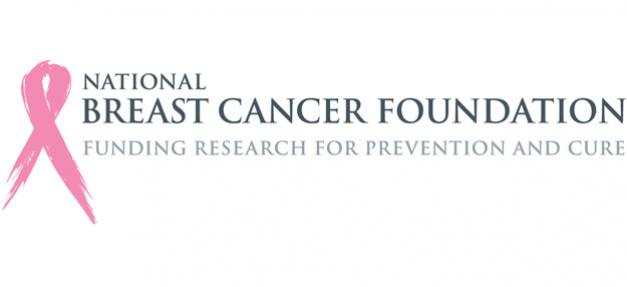The SDA continues to support life saving research funded by the NBCF:
Meet Natalie
“In 2010, I was diagnosed with breast cancer. My daughter Allegra was only six months old. I had an aggressive type of breast cancer called HER2 positive, which is known to grow and spread quickly.
“I had a lumpectomy and radiotherapy every night for five weeks, and I was hopeful because it had been found early.
“Then when I was 30 weeks pregnant, I was told I had breast cancer for a second time.
“I immediately had a mastectomy and then started chemo with my eight-day-old baby in my arms. At this stage, Allegra was just 4.
“I was prepared to do whatever was necessary.
“Had it not been for the drug Herceptin, my fate would have been decided for me.
“I didn’t realise the significance of Herceptin in my treatment until a friend told me it had only been accepted onto the PBS a few years earlier.
“It blew my mind to think that if I’d been diagnosed just 10 years earlier, it would have been a death sentence. Herceptin is a wonder drug.”
Another research breakthrough also made a tremendous difference for Natalie and her family: the advances in anti-nausea medication.
“One of my greatest fears was that the side effects of chemo would be so debilitating. I just wanted to be there for my children.
“I still cannot believe I got through six months of chemo without one day of nausea and vomiting – it meant I could still be there for the kindy drop off and pick up.”
Because Natalie had been diagnosed twice, and had a family history, she chose to have her other breast and her ovaries removed, and a hysterectomy.
“Going through early menopause in your 30s is not fun. But I wanted to do everything in my power to prevent the cancer coming back.
“My greatest fear is that it will come back somewhere else, and when it does there’s nothing they can do apart from trying to prolong your life.”
Despite her fears, Natalie has a great hope that her girls will never have to live with this uncertainty.
She has even given up her career as a lawyer to work for a medical research institute herself, describing this as her ‘life’s purpose’.
“By the time they’re old enough to have a genetic test, it will be conclusive. And even if there isn’t a ‘cure’ for cancer by then, I believe it will be just a condition you can live with. Just like any other medical condition, it will be treatable.”
Research Makes a Real Difference
These are just two examples of the transformative impact research can achieve.
The Herceptin breakthrough has made a massive difference to the lives of women across the globe.
But more breakthroughs are needed to find answers for the thousands of women who are still dying each day.
According to NBCF-funded researcher Professor Matt Trau, the future of breast cancer research lies in being able to detect, monitor and use existing treatments effectively to treat each woman and each tumour successfully.
He explains, “Every cancer is quite unique which is incredibly frustrating for researchers.
“What we really need is powerful diagnostics to see these differences, and use this information to guide precision and personalised medicine for every patient.
“Our ultimate goal is for breast cancer to become a manageable disease – and I believe in the next 10 years this is what the future holds for breast cancer care.”
Professor Trau and his extensive collaborative team are making incredible progress in improving three areas: early detection, the right treatment for the right patient, and how to know if the cancer is coming back.
For each of these areas, his team hopes to discover a simple test – or biopsy – that can predict or monitor breast cancer so that major improvements can be made in the treatment and survival of those affected by breast cancer.
SDA Continues its Support for Breast Cancer Research
Breast cancer does not discriminate – young and old, it affects families across Australia every day.
Research is the only way to stop it.
If it wasn’t for the research, Natalie might not be here now to enjoy every precious moment with her daughters, husband and family.
The SDA has been supporting the NBCF through a Pink Ribbon campaign for almost 20 years to help fund this vital research.
How Can You Help? Host a Pink Ribbon Breakfast!
If you want to support the National Breast Cancer Foundation, simply hold your own Pink Ribbon Breakfast this October.
Registrations are now open.
Holding a Pink Ribbon Breakfast is a fun way to bring together friends, family and colleagues to raise important funds for breast cancer research.
For more information or to register, visit www.pinkribbonbreakfast.org.au
This article was originally published in The Shop Assistant Journal - Spring 2017: Vol 81, Iss 3.


